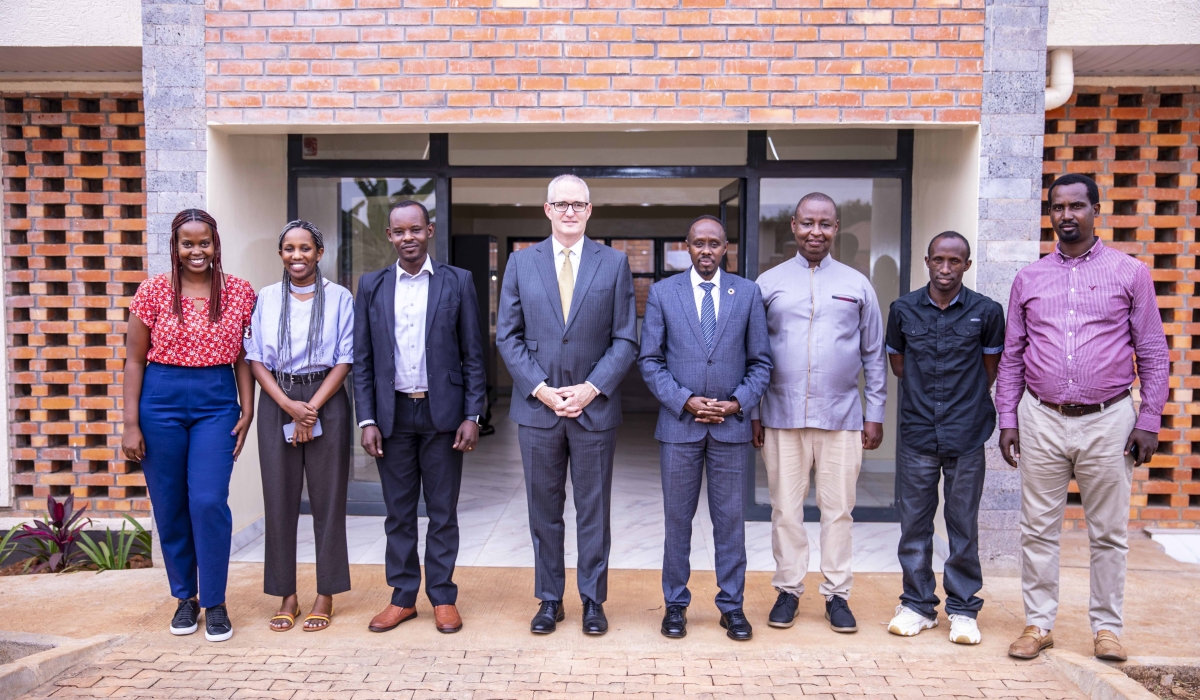
FEATURED: Rwanda’s justice system embraces Alternative Dispute Resolution: A public-private partnership

Rwanda has made significant progress in reforming its justice system, integrating Alternative Dispute Resolution (ADR) mechanisms as a cornerstone of this transformation. This approach, which emphasises mediation and plea-bargaining over traditional court procedures, has not only resulted in substantial financial savings but has also significantly improved the efficiency of the judicial process. The Cabinet’s adoption of the ADR and Criminal Justice Policies in September 2022 marked a crucial milestone in advancing the Justice, Reconciliation, Law, and Order Sector.
The success of these policies can be attributed to a robust Public-Private Partnership (PPP) model, where the Ministry of Justice has collaborated closely with Civil Society Organizations (CSOs), Development Partners (DPs), the Private Sector, and Public Institutions.
Recent statistics from the courts underscore the growing influence of ADR methods in the country. For example, in the 2023/2024 period alone, over 12,000 cases were resolved through ADR mechanisms, resulting in estimated savings of Rwf 7.5 billion. This shift reflects a broader mindset toward resolving disputes outside of lengthy court procedures.
The contributions of Civil Society Organizations (CSOs) and Development Partners cannot be understated. Representing the broader Civil Society, the Legal Aid Forum (LAF) has played a pivotal role in driving numerous initiatives crucial to successfully adopting and implementing ADR mechanisms throughout Rwanda. LAF’s approach to promoting Alternative Dispute Resolution includes providing legal aid through these mechanisms in both civil and criminal matters. LAF has also played a crucial role in capacity building by offering training programmes for community members, paralegals, and legal professionals to enhance their understanding and application of ADR.
“At LAF, we believe that justice should be accessible to all, regardless of socio-economic status. Our focus on ADR mechanisms, including mediation and plea-bargaining, is driven by the need to provide timely and affordable justice, especially for vulnerable communities. We are deeply grateful for the support from USAID Rwanda and our other partners, whose contributions have been instrumental in advancing these initiatives,” said Andrews Kananga, the Executive Director of LAF, speaking about the organisation’s commitment
One of LAF’s most significant contributions was helping with the set-up of the ADR Centre in Rwanda, in collaboration with the Judiciary, Ministry of Justice, and development partners. This centre, scheduled to be launched at the end of August 2024, is poised to serve as a national model for ADR and criminal justice projects, providing comprehensive ADR-related services.
LAF has been instrumental in designing the centre’s structure and continues to coordinate its operations as a member of the ADR Centre’s steering committee.
Over the past seven years, 6,848 cases were resolved through mediation alone, with a significant increase in the number of cases resolved through plea-bargaining in the 2023/2024 judicial year. This shift towards ADR is not only reducing court backlogs but is also fostering a culture of resolving disputes amicably and efficiently.
Rollout of plea-bargaining procedures and empowering communities
LAF’s efforts in plea-bargaining are particularly noteworthy. Since the adoption of the Criminal Justice Policy in 2022, LAF has been at the forefront of implementing plea-bargaining procedures, a process where the defendant pleads guilty to a lesser charge in exchange for a more lenient sentence, and more than 116 detainees were supported to negotiate reduced charges. LAF has also provided training legal professionals on the intricacies of plea-bargaining, and raising awareness among the general public and prison communities.
“Our work in plea-bargaining is about more than just resolving cases—it’s about restoring dignity and fairness to the justice process,” Kananga noted. “By reducing court backlogs, we’re helping to ensure that justice is delivered swiftly and equitably.”
As Rwanda continues to embrace ADR as a cornerstone of its justice system, the role of organisations like LAF remains critical. By advocating for the integration of ADR into legal frameworks, providing training and resources, and directly assisting individuals in need, LAF is not only supporting the government’s efforts but also fostering a more equitable and accessible justice system for all Rwandans.
Despite these successes, challenges that require further attention remain, including the need for more legal aid lawyers to assist in plea-bargaining and the need for greater involvement of victims in the process. There is also a need to scale up the procedure to apply to all offenses and to ensure that it is used preventively by prosecutors during investigations.
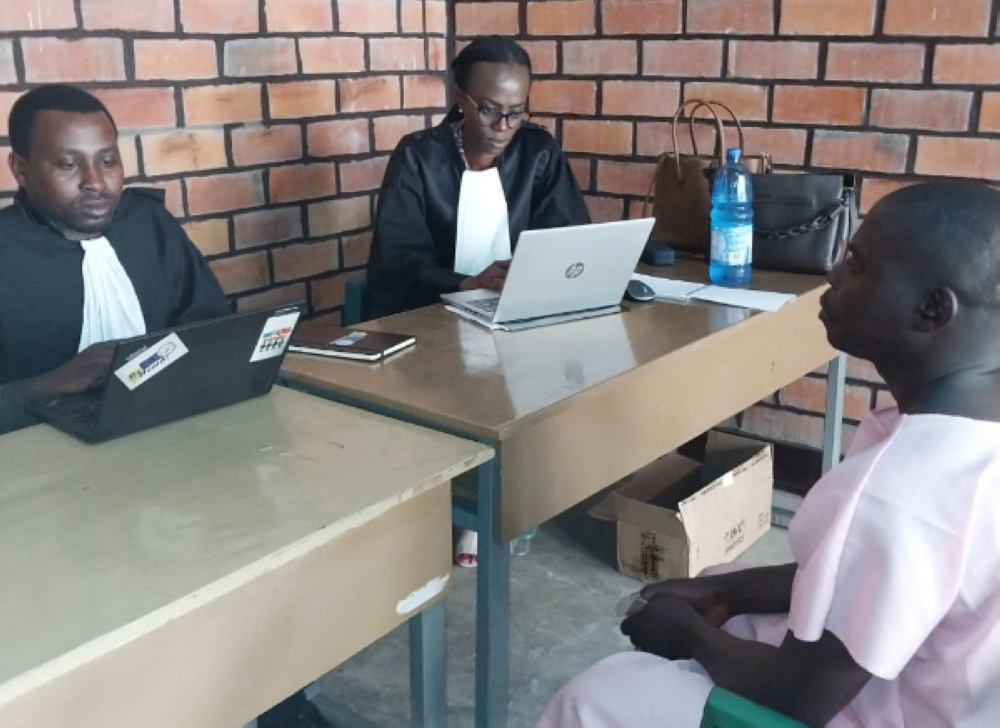
LAF defence lawyers assisting suspect to understand the case and deciding on how they will negotiate with the prosecution
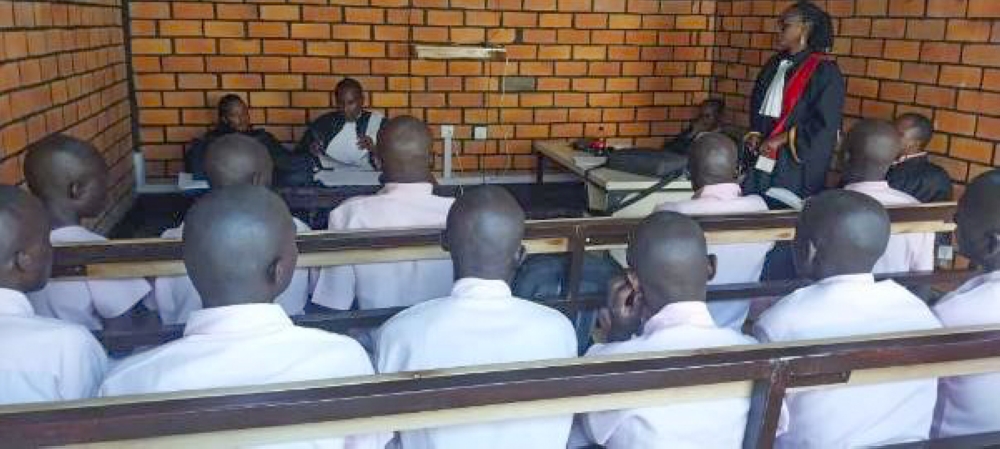
On 27th January 2023, in a courtroom, one of the prosecutors presenting to the court the plea agreement
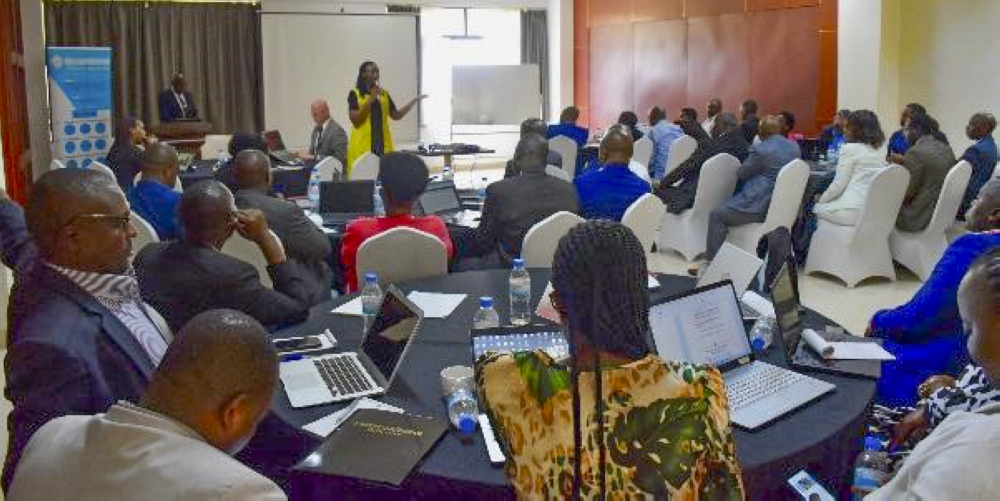
Participants during the training on plea-bargaining
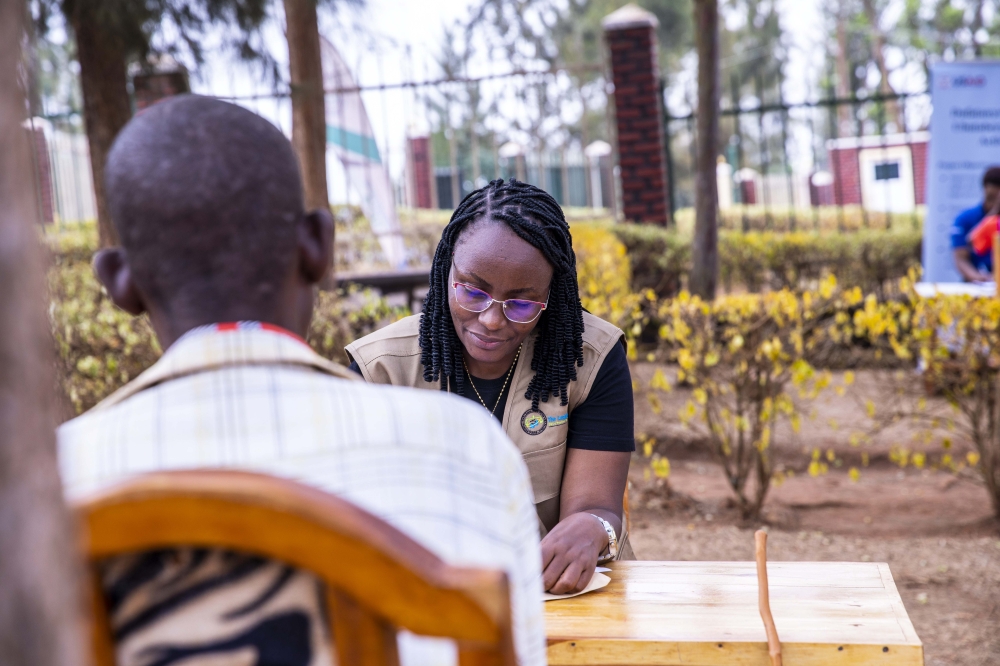
Source: Newtimes
Our Partners

















